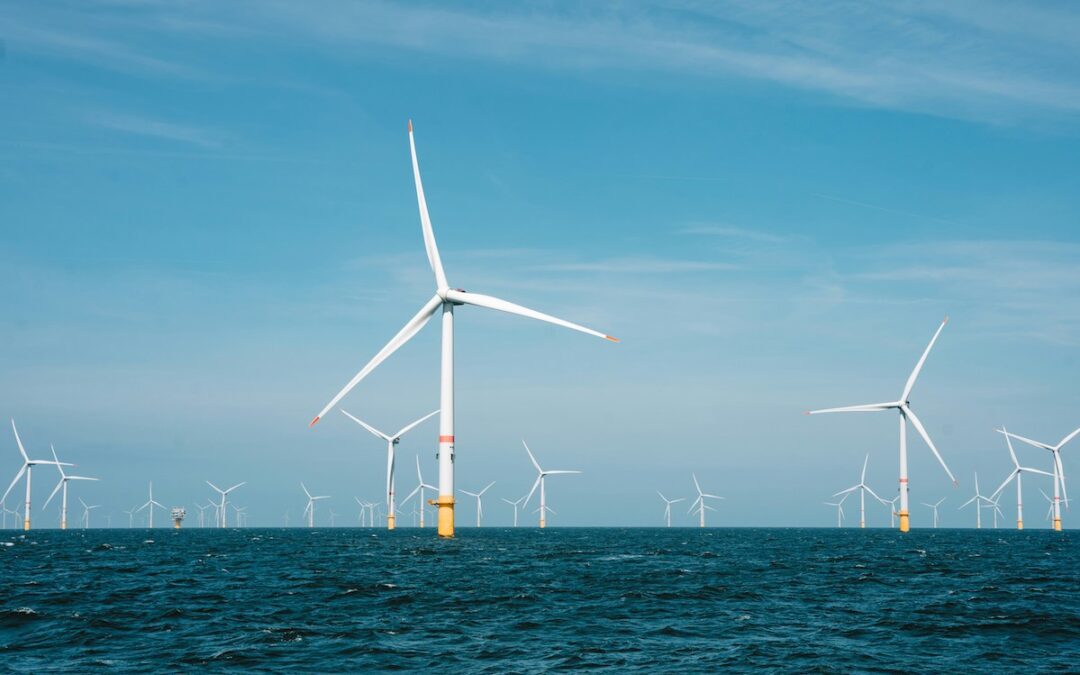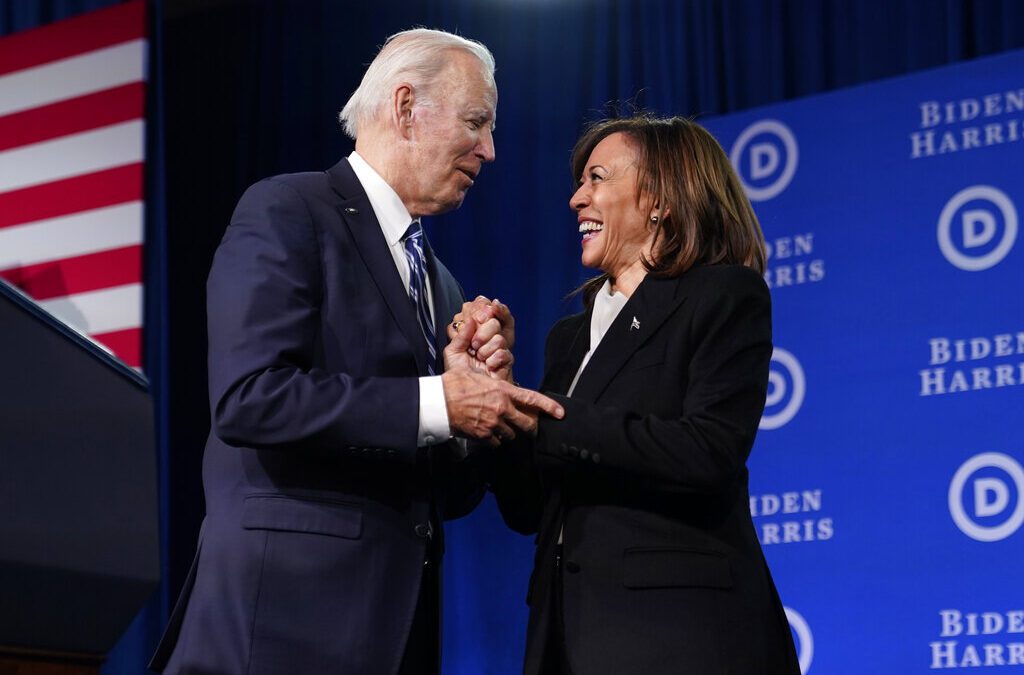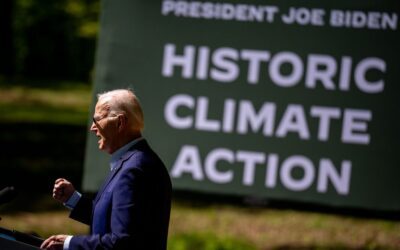
Contributed photo of Rhena Hicks and Chris Leyen
As young community leaders in Virginia, two things are very important to us: bringing down rising costs and preserving our planet for our generation and the next. Thankfully, President Biden’s landmark Inflation Reduction Act (IRA), which celebrated its first anniversary on Aug. 16, is already making both of these goals a reality, and it’s just getting started. On top of inflation being down to 3.2%, compared to 8.5% a year ago, the law’s health care and energy provisions are having a real impact on the lives of Virginia families, putting economic freedom closer to reality for hundreds of thousands of Virginians.
Virginians are seeing the progress of the IRA—and now it’s time for legislators here in Virginia to take the next steps on health care costs and clean energy to multiply those benefits.
Thanks to the IRA, health care costs are coming down. Over 300,000 of our friends and neighbors across Virginia are saving an average of $850 through the continuation of subsidies for health insurance plans purchased through the Affordable Care Act Marketplace. Big Pharma is also being held accountable for out-of-control prescription drug prices through new penalties for drug manufacturers that increase the price of their products faster than inflation. That is a huge win for the 1 in 4 people in Virginia who report skipping or rationing their prescriptions due to costs.
Additionally, Medicare beneficiaries are already seeing lower costs thanks to the IRA’s guaranteed vaccine coverage, including shingles. The savings won’t stop there —Medicare finally has the authority to negotiate drug prices, a tool private health insurance companies already have, to bring down the cost of prescription drugs. An estimated 390,400 Medicare recipients in Virginia will also save an average $440.62 thanks to the $2,000 annual out-of-pocket cap that will start in 2025. Whether you are in your twenties or a senior citizen, the IRA is making health care more affordable for all of us.
Virginia lawmakers could help bring down health care costs even more by establishing a Prescription Drug Affordability Board, an independent entity with the authority to establish reasonable caps for high-cost prescription drugs that are forcing families to choose between staying healthy and paying rent.
The IRA is also saving families money by helping them use less energy. Energy costs are down 12.5% from this time last year. Projects that lower household electric bills by giving families power over the power they use, like installing solar, geothermal, wind energy or battery storage are eligible for a 30% tax credit. These energy improvements will help reduce dependence on fossil fuels—bringing cleaner air to Virginia communities currently exposed to harmful emissions from coal and natural gas power plants or compressor stations located near where they work and go to school.
Further savings are available on efficiency improvements that lower bills by helping families use less energy—up to $14,000 in rebates for electrification upgrades and up to $8,000 in rebates for energy-saving improvements. These Home Energy Rebate Programs include heat pumps and electric stoves, but also extends to insulation, breaker box upgrades and wiring projects. The IRA is also helping reduce asthma- and heart-disease-inducing pollution caused by car and truck tailpipe emissions by providing up to $7,500 in savings for new electric vehicles or up to $4,000 for used electric vehicles.
Virginia is already a national leader on clean energy, thanks to the passage of the landmark Virginia Clean Economy Act, which is putting Virginia on a path to decarbonizing our electric grid by 2050 and will save households an average of $3,500 over 30 years. Now, with the IRA, we are poised to supercharge clean energy deployment and job creation, which will grow our cutting-edge economy and tackle climate change.
Unfortunately, Gov. Glenn Youngkin is taking Virginia in the opposite direction. The governor has proposed policies to slow down Virginia’s transition to green energy by weakening the VCEA. Additionally, earlier this year, the governor unlawfully forced Virginia to exit from the Regional Greenhouse Gas Initiative (RGGI), a popular policy that not only lowered carbon emissions in our Commonwealth, but has also generated over $730 million for the state to fund energy-efficiency and flood preparation projects. With no alternative plan other than to just rip Virginia away from this partnership with other states, energy costs are also at risk of going up. RGGI is not only a program to cut carbon emissions, but also cut costs for households across the commonwealth. Between 2009-2019, states that were a part of RGGI saw the cost of electricity drop by nearly six percent, while non-RGGI states saw an increase of nine percent.
To make matters worse, the Gov. Youngkin and Virginia House Republicans sided with Big Pharma to defeat Senate Bill 957, which would have established the Prescription Drug Affordability Board that a majority of Democrats, Republicans, and Independents support.
Thankfully, we do not have to continue on this course of undermining the progress of the Inflation Reduction Act. Voters in Virginia will decide this November whether we go forward or backward by asking candidates where they stand on lowering health care costs and expanding clean energy. We have an opportunity to build on the cost savings of the IRA by electing majorities who support policies that will lower our energy and health care costs.
Author’s bio: Rhena Hicks is the executive director of Freedom Virginia, a nonpartisan 501(c)4 organization committed to building a Commonwealth where all Virginia families have the freedom to thrive.
Author’s bio: Chris Leyen is the policy director for the Virginia League of Conservation Voters, which serves as the political voice of the Commonwealth’s conservation community.

Opinion: Cutting clean energy investments would kill jobs, hurt Virginians
In a state like Virginia, which is on the front lines of climate change and also solutions to fight it, the significance of the Inflation Reduction...

ICYM: Virginia is becoming a leader in clean energy
Clean energy is taking over the commonwealth. Here’s what you need to know about Virginia’s newest renewable energy news. Despite Republican Gov....

Judge: Youngkin did not have authority to remove Virginia from climate change program
The Youngkin Administration plans to appeal the ruling. Republican Gov. Glenn Youngkin did not have the authority to end Virginia’s participation in...

Opinion: Biden and Harris made great progress on climate the past 4 years. Let’s secure the wins this November
August 16 marks the second anniversary of the Inflation Reduction Act, the Biden-Harris administration’s landmark legislation that made the largest...

Youngkin says Virginia will no longer follow stronger car emissions standards
The stronger standards are intended to reduce gas emissions by transitioning to EVs more quickly, a crucial part of addressing the climate crisis....

7 clean energy programs making an impact in Virginia
Virginia is making big changes in its move toward clean energy. Both national and local projects are introducing more sustainable and affordable...




